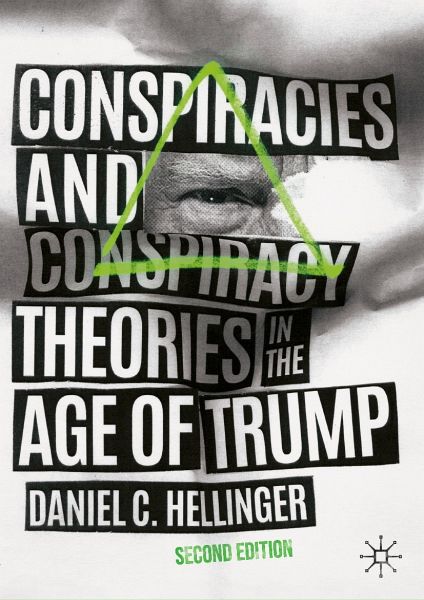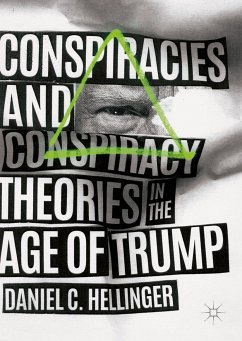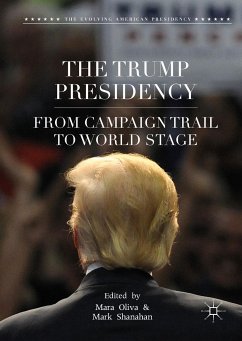
Conspiracies and Conspiracy Theories in the Age of Trump (eBook, PDF)
Versandkostenfrei!
Sofort per Download lieferbar
96,95 €
inkl. MwSt.
Weitere Ausgaben:

PAYBACK Punkte
48 °P sammeln!
Conspiracies and Conspiracy Theory in the Age of Trump stands out in the burgeoning literature on conspiracism with its call for political scientists to analyze not only "conspiracy theory" as political pathology but conspiracies themselves as political behavior symbiotically related to moral hazards and other forces unleashed by dark money, disinformation, changing technologies, and globalization. This new updated edition extends this analysis to the belief by many Americans that the 2020 election was stolen, resistance to social measures to counter the Covid epidemic, attempts by Trump and h...
Conspiracies and Conspiracy Theory in the Age of Trump stands out in the burgeoning literature on conspiracism with its call for political scientists to analyze not only "conspiracy theory" as political pathology but conspiracies themselves as political behavior symbiotically related to moral hazards and other forces unleashed by dark money, disinformation, changing technologies, and globalization. This new updated edition extends this analysis to the belief by many Americans that the 2020 election was stolen, resistance to social measures to counter the Covid epidemic, attempts by Trump and his allies to "stop the steal," and the resulting mob insurrection at the Capitol on January 6. We likely will see both conspiracism and actual conspiracies play a greater role due to institutional decay in American politics. For this reason, political scientists need to analyse and theorize the role of conspiracies in politics-why they prosper and fail, how conspiracies may inflect political outcomes, what relationship they bear to social forces unleashed by great economic and social change.
Dieser Download kann aus rechtlichen Gründen nur mit Rechnungsadresse in A, B, BG, CY, CZ, D, DK, EW, E, FIN, F, GR, HR, H, IRL, I, LT, L, LR, M, NL, PL, P, R, S, SLO, SK ausgeliefert werden.












